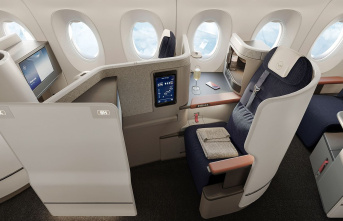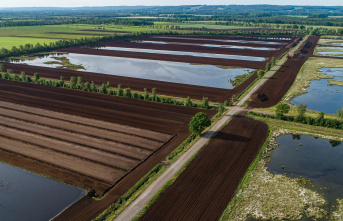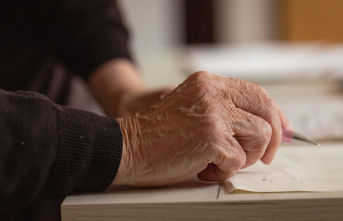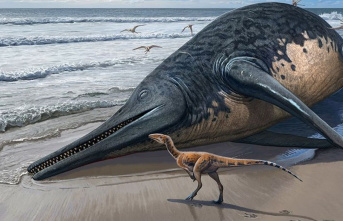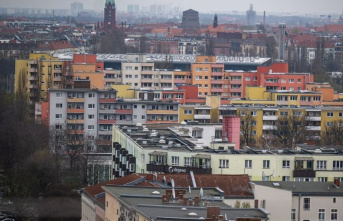With experiments by German student teams and supplies for the astronauts on board, a "Dragon" freighter has started for the International Space Station ISS. The unmanned freighter of Elon Musk's private space company SpaceX took off on Tuesday evening (local time) from the Cape Canaveral cosmodrome in the US state of Florida, as shown by live images from the US space agency Nasa. The "Dragon" is expected at the ISS on Thursday.
On board the freighter are, among other things, four projects by student teams from Hanover, Stuttgart, Munich and Luxembourg, which, according to the German Aerospace Center (DLR), won a competition in 2021. The experiments deal, among other things, with plant growth in weightlessness and the question of how spacecraft can be made less susceptible to repairs.
The plant growth experiment was carried out by a team from the University of Hanover. In the experiment, the team uses a model clover plant (Medicago truncatula) that is infected with a bacterium (Sinorhizobium meliloti). The group would like to investigate whether the method of self-fertilization through the symbiosis with the bacterium also works in weightlessness - because for future planned long-term missions it will be necessary for astronauts to have plants, preferably protein-rich legumes such as peas or lentils, as a food source in the spacecraft plant.
From fertilizer to dementia
The plants are transported to the ISS in prefabricated containers. The small boxes remain there for 30 days and do not have to be touched by the astronauts.
The team from the University of Stuttgart wants to test three applications of so-called ferrofluids in weightlessness. The aim is to replace mechanical parts such as switches in space travel with technologies that are less susceptible to wear - in order to save maintenance time and costs. Ferrofluids are liquids in which there are magnetic particles that react to external magnetic fields.
The experiment by the team from the Technical University of Munich (TUM) comes from aging and dementia research. According to DLR, previous research on the ISS has shown that aging processes are significantly faster in many areas under space conditions. The group sends nerve cells into space. Some of the cell cultures are treated with a protein that plays an important role in Alzheimer's.
The results are then compared to experiments on Earth. Because certain aging processes are accelerated in space, the aim is to find out whether it is better to research the effects of degenerative diseases in space.
The fourth team from the University of Luxembourg wants to grow so-called organoids from human stem cells in zero gravity, which will be used to research the development of diseases and the effects of medicines.


